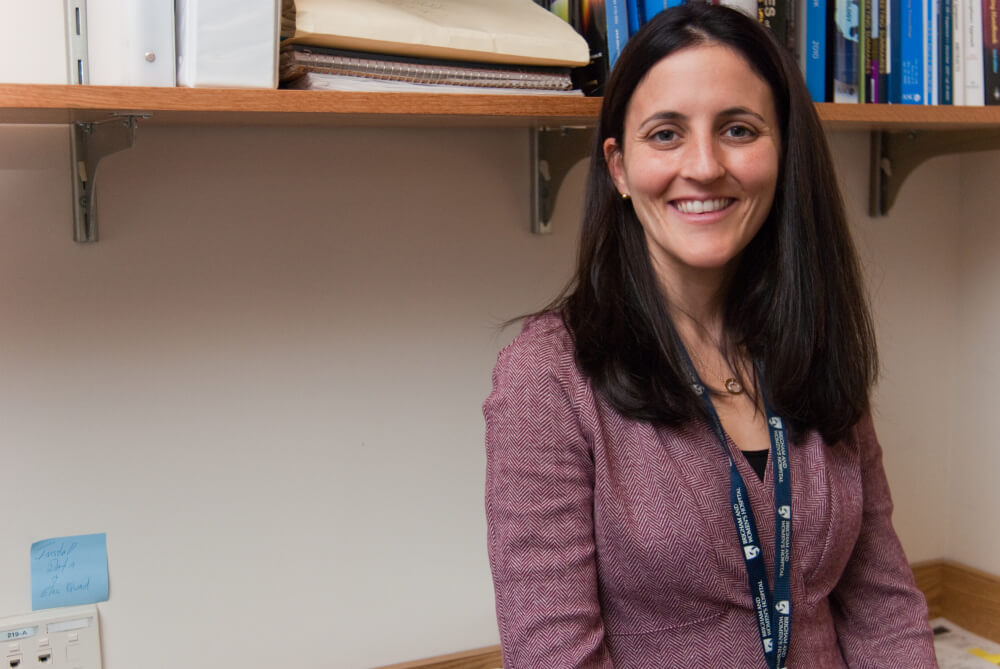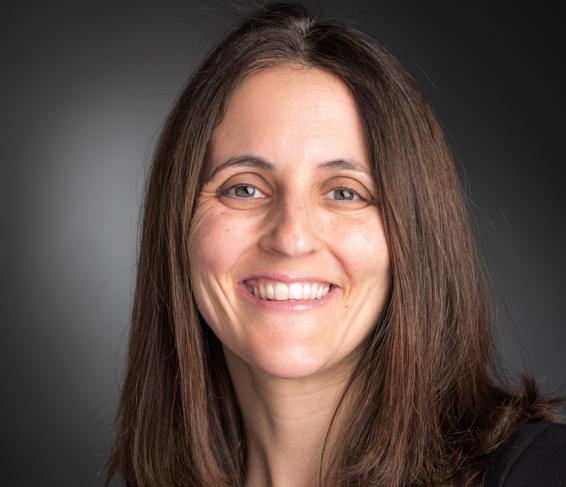- Older cancer patients will have specific needs as it relates to their treatment and care.
- It’s crucial to get the entire picture of the potential benefits and risks of treatment.
- There are also a number of resources available that can help patients and caregivers navigate treatment and its emotional impact.
Regardless of age, a cancer diagnosis can be stressful, and everyone will process it differently. An older patient will have particular needs, and you and your support system have a unique blend of factors to consider.
“As the population becomes healthier, we’re living longer, fuller lives,” says Rachel Freedman, MD, MPH, a medical oncologist at Dana-Farber who specializes in breast cancer and the care of older patients. “When treating older patients, it’s important to assess the whole person and not just focus on their age.”
Here are some considerations relating to treatment for older patients, including how one can look at their functionality, how to cope with side effects, and how to manage the emotional impact of cancer.
Determining functional status
One way to get a better understanding of a patient’s functionality is by performing a set of surveys called the “Geriatric Assessment,” which is being used more and more in practice with older patients. These surveys ask patients about their overall health, physical limitations, social support, mental health, and other factors using a series of simple questions such as: “Have you fallen recently?” “Who lives with you?” “Who prepares your meals?” The results of this assessment may help understand how likely you are to have side effects with chemotherapy and may help your team develop treatment plans and evaluate short and long-term care needs.
All patients who enroll in the Program for Older Adults with Breast Cancer (OABC) at Dana-Farber complete a geriatric assessment. The results are shared with both the patient and their care team, and together they will develop a collaborative plan to address any areas of concern. Any patient, or their caregiver, may request a geriatric assessment or to be referred to the Program for Older Adults with Breast Cancer.
As a caregiver, make sure to speak up if you feel the patient you are caring for could benefit from one of these surveys.
There are additional tools and resources patients and caregivers can explore on their own, which are related to considerations in the care of adults:
- The Cancer and Aging Research Group (CARG) offers a geriatric assessment tool, as well as a litany of resources for older adults on topics including emotional support, nutrition, memory, and living and care options.
- Cancer.net is a patient information website developed by the American Society of Clinical Oncology (ASCO) to provide timely, oncologist-approved information for patients and their families. Cancer.net has a special section dedicated to issues important for older patients.
Risk versus benefit
As a patient, it’s important to get the complete picture of the potential benefits and risks of a treatment program before a decision is made about how to proceed.
Your oncology team should also be able to explain any anticipated side effects and how they may affect your quality of life. You need to understand how the treatments are expected to benefit you so you can measure the risks of treatment against what might happen if the cancer goes untreated.
If you are collecting this information on behalf of a patient, be sure to factor in their overall thoughts, preferences, and priorities. Only then can you collectively decide on a plan that is best for them.

Barriers to treatment
Patients sometimes face challenges in completing treatment because of cost, a side effect, or perhaps because of things like transportation. Sticking with long term pill-taking can also be difficult but is often important in some types of breast cancer.
You should feel comfortable telling your oncology team about any struggles you are having with your treatment, so that they can help sort out what you might need to make your situation better. For example, there are financial assistance resources for those who don’t have the ability to pay for their medications. If you are experiencing side effects, it is also important to tell your providers because there may be ways to modify treatments to make them more manageable.
If remembering to take your medication is a problem, pill boxes, phone reminders, or taking medication at the same time every day can all help you remember to take your medications. If the problem persists, there are also services, such as visiting nurses, who can offer additional support for you in your home.
Treating the whole patient
Older patients may feel isolated, be less active both physically and socially, or even minimize their cancer internally or when speaking with others. Treating the whole patient involves addressing these concerns, and if you’re a caregiver, it’s important to speak up if you’re worried. Oftentimes there are resources available such as workshops, support groups, or even exercise classes.
For patients, it’s important to address any other medical challenges you may be experiencing. It is very common for older patients with cancer to have other medical conditions requiring medications and special considerations. Your oncology team should help guide whether additional specialists are needed, while also keeping in close contact with your primary care team.
Communication is key
In general, letting your providers know about your worries and challenges is key, both at the start of treatment and in the long term. If possible, try to have someone accompany you to your appointments, especially at the beginning. This is when the oncologist will go over a lot of information, both about your cancer as well as a potential treatment plan.
There are many ways to get the additional support you need, to do as well as possible once a cancer is diagnosed. The best thing you can do to take advantage of these resources is to simply ask about them.
About the Medical Reviewer

Dr. Rachel Freedman is a medical oncologist and clinical researcher at DFCI in the Breast Oncology Program. In addition to seeing patients with breast cancer, her research focuses on improving the care of vulnerable patient populations who are under-represented in clinical trials and who are at risk for worse breast cancer outcomes, including older women and those who face challenges in access to care. In addition, she is interested in novel therapeutics, serving as the Principal Investigator for several clinical trials. She is also the founder and Director of the Program for Older Adults with Breast Cancer at DFCI. Dr. Freedman joined the faculty at DFCI in 2009. She studied at Georgetown University School of Medicine and obtained her master's in public health at the Harvard University T.H. Chan School of Public Health. Her research has been funded by Susan G Komen, ACS, NCI, Gateway for Cancer Research, METAvivor, and the Alliance for Clinical Trials Foundation.

Rachel was a huge blessing to me! She and her team made me feel as comfortable as possible while going through the clinical trial. I’m so grateful to say I’m Cancer free!!
Paula M Seavey
I read this with great interest. I was a patient at Dana Farber then not a patient. Something went awry and the whole patient got lost or something. I would like to be reinstated as a patient of Doctor Harshman.
I was pleased to read Dr. Freedman’s strategy of considering the whole patient in relation to cancer treatment protocols.
As a registered nurse in my 50’s, I was shocked by the attitude I observed in talented, compassionate physicians:
older patients were to be given treatment with the caveat that they were indeed elderly with limited functional status and a limited remaining lifespan.
Now I am in my 70’s. My senior peers hike, kayak, run (in marathons), play tennis and other sports. We are cognitively intact with easy appreciation of The Big Bang Theory. Self-management of any medications is without problems, accompanied by “healthy” lifestyles. We understand any disease entities.
Hopefully, these characteristics of my segment of senior society will be considered by treating clinicians.
I appreciate this opportunity to communicate with you.
Judith Wilkins